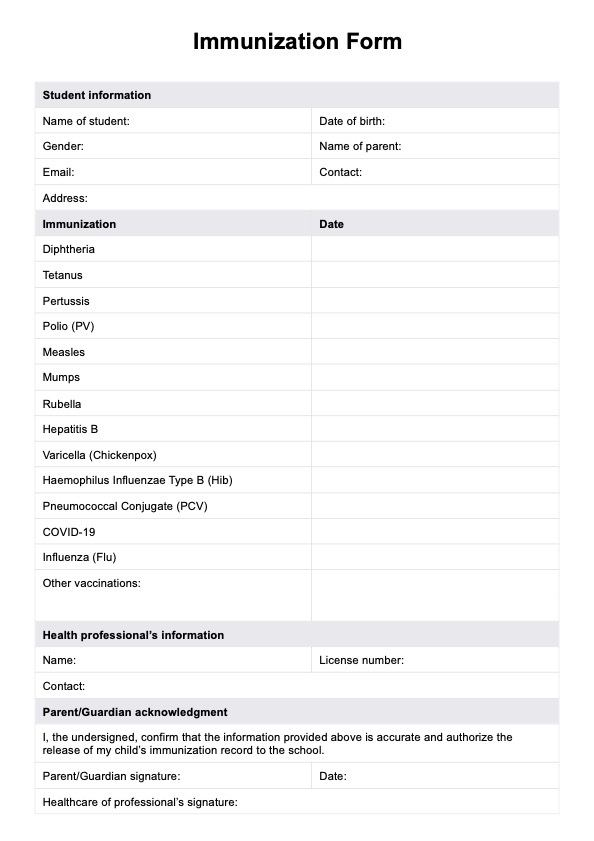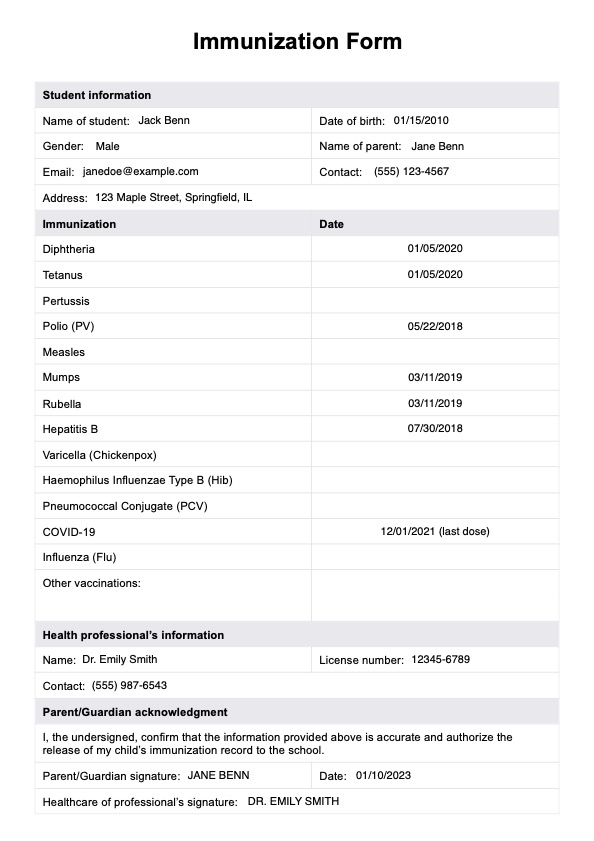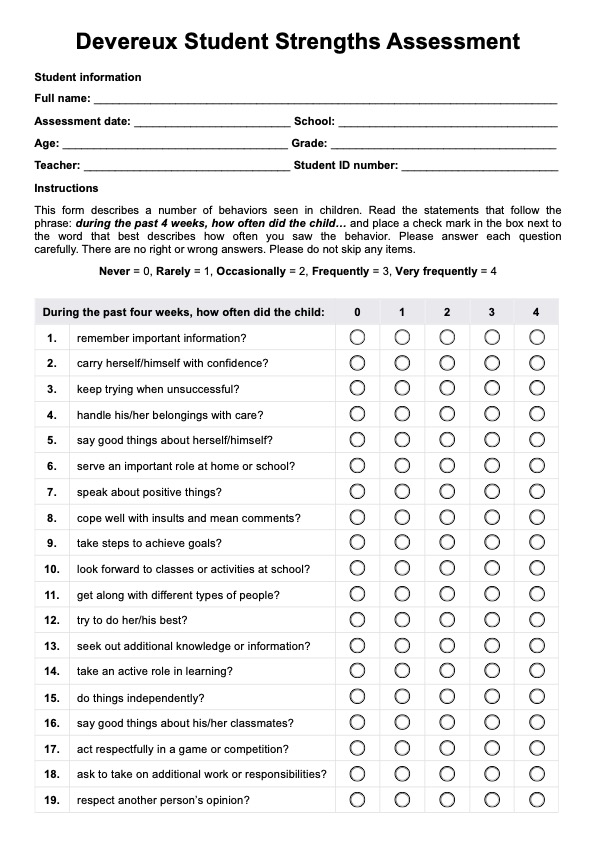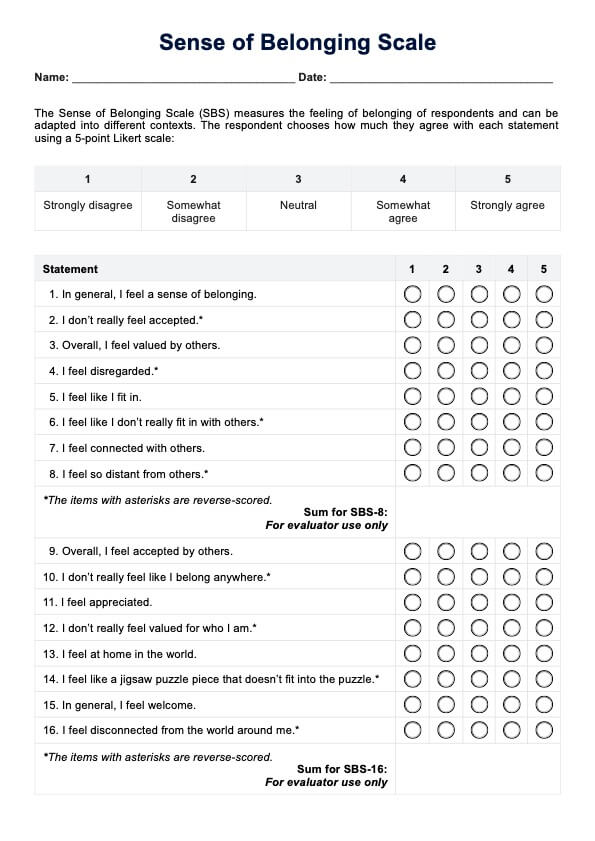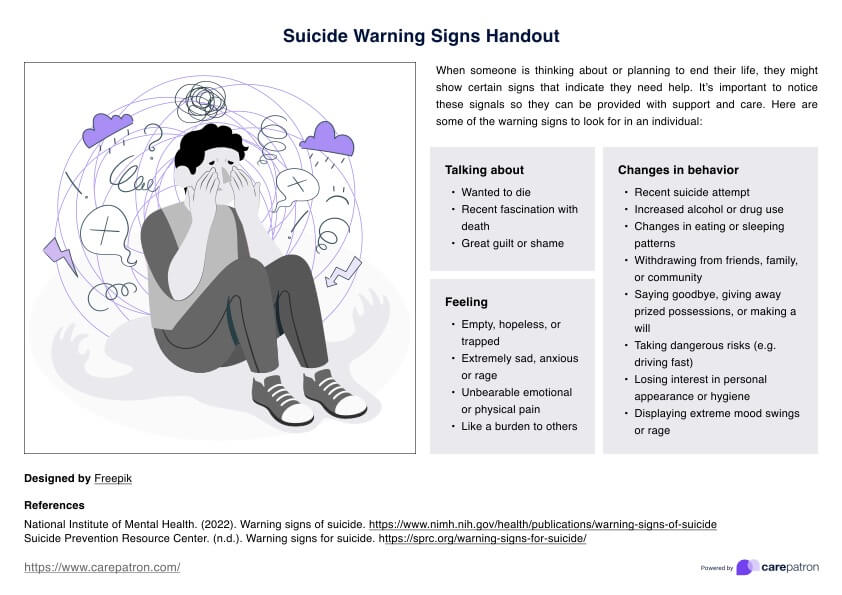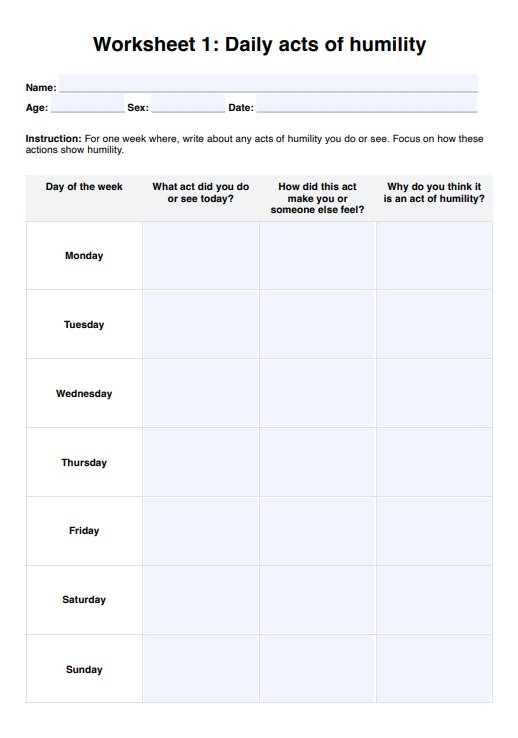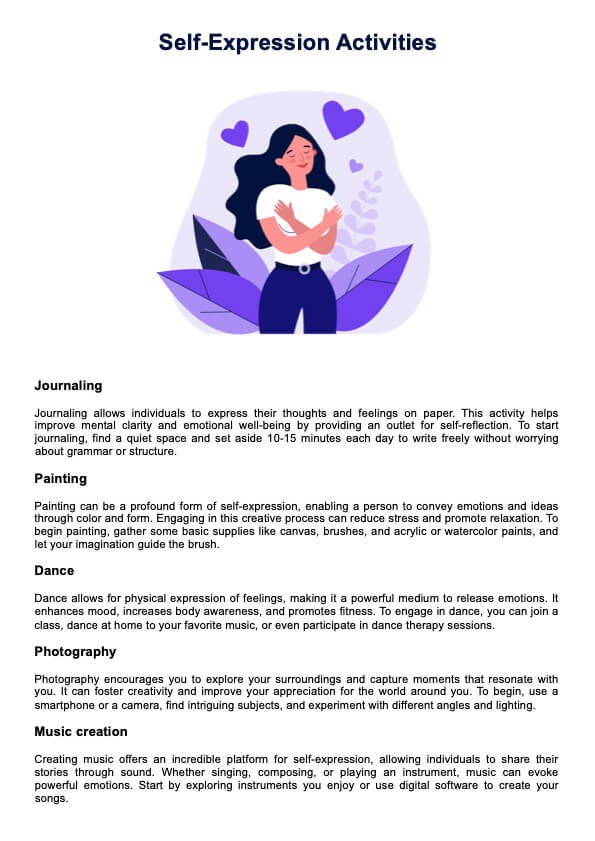Immunization Form
Streamline school health compliance with our Immunization Form for students template, designed to track student vaccinations and ensure a safe learning environment.


What is an Immunization Form for schools?
An Immunization Form is a document used to record a child's vaccination history. It typically includes the following sections:
- Student information: Collects basic details such as the student's name, date of birth, gender, and contact information.
- Immunization record: Lists all the required vaccines and their administration dates. Common vaccines include Diphtheria, Tetanus, Pertussis (DTaP), Polio (IPV), Measles, Mumps, Rubella (MMR), Hepatitis B, Varicella (Chickenpox), Haemophilus influenzae type b (Hib), Pneumococcal Conjugate (PCV), Influenza (Flu), and COVID-19.
- Healthcare professional's information: Provides details of the healthcare professional who administered the vaccines, including their name, license number, and contact information.
- Parent/guardian's signature: Confirms that the information provided is accurate and that the parent/guardian consents to the immunization record being shared with the school or relevant authorities.
Immunization Form Template
Immunization Form Example
How does our Immunization Form template work?
Our Immunization Form template is designed to simplify recording and tracking school-age children's immunizations.
Step 1: Access the template
Open the Immunization Form template by clicking the "Use Template" button to open and customize it in the Carepatron app. For a PDF version, select "Download." This template ensures accurate and organized immunization records, simplifying documentation and record-keeping.
Step 2: Explain the form
When providing the form to parents or guardians, explain each section to ensure they understand what information is needed and why it's important. This helps in building trust and provides accurate data collection.
Step 3: Complete the form
Have the parent or guardian fill out the form with the child's information, immunization record, and the healthcare professional's information. Be thorough and accurate when recording vaccination dates. If necessary, recommend blood tests or booster shots to parents who have forgotten if they have had their children vaccinated.
Step 4: Review and confirm
Review the completed form with the parent or guardian to confirm the accuracy of the information. Address any questions or concerns they may have.
Step 5: Store securely
Keep the completed form securely in the child's file for future reference. This ensures that you have all the necessary information for the child's care and compliance with school immunization requirements.
Who uses Immunization Forms?
Immunization Forms are essential tools for health care providers, public health organizations, and individuals to promote disease control and prevention while ensuring compliance with public health regulations:
- Parents and guardians: Adults use Immunization Forms to track their children's vaccinations and submit proof of immunization to schools, daycare centers, and other institutions.
- Healthcare professionals: Doctors, nurses, and other healthcare providers use these forms to record vaccinations, monitor immunization status, and ensure disease control.
- Schools and daycare centers: Educational and childcare institutions require these forms to confirm that children meet vaccination requirements set by the CDC and other public health authorities.
- Public health departments: Government agencies use Immunization Forms to collect data on vaccination rates, identify areas with low coverage, and implement prevention measures to control outbreaks.
- Travel agencies and organizations: Travel programs, especially international ones, may require Immunization Forms to verify participants are protected against diseases prevalent in their destination, following CDC guidelines.
The benefits of using Immunization Forms
Immunization Forms are not just paperwork but crucial tools in the ongoing battle against preventable diseases. They offer many advantages beyond individual health, contributing to the well-being of entire communities. Here are some key benefits of using Immunization Forms:
- Improved health outcomes: By ensuring that children receive all necessary vaccinations on time, Immunization Forms help prevent the spread of infectious diseases and protect the health of the individual and the community.
- Compliance with regulations: Immunization Forms help parents, schools, and healthcare providers comply with state and local immunization requirements, avoiding legal issues and ensuring children can attend school or daycare.
- Easy tracking and monitoring: These forms provide a systematic way to track and monitor a child's immunization history, making it easier to identify missing or overdue vaccines and schedule appointments accordingly.
- Enhanced communication: Immunization Forms facilitate communication between parents, healthcare professionals, and schools, ensuring everyone is informed about a child's immunization status.
- Data collection for public health: On a larger scale, the information collected through Immunization Forms is valuable for public health departments to assess vaccination coverage, identify trends, and implement targeted vaccination campaigns.
Best of all, if you use the Immunization Form template from the Carepatron app, you also benefit from all the great features that Carepatron offers, such as secure storage, easy access to patient records, and seamless integration with other practice management tools.
Commonly asked questions
Healthcare providers can ensure accuracy by cross-referencing vaccination records from the CDC or local health departments, verifying dates and vaccine types, and conducting regular audits to identify any discrepancies.
Yes, most schools and daycare centers require Immunization Forms to comply with disease control and prevention regulations set by public health authorities, including the CDC. However, exemptions may apply in certain cases, such as medical or religious reasons.
Many institutions accept electronically submitted Immunization Forms. Using a template through the Carepatron app allows practitioners to securely store and submit forms digitally, meeting compliance and data protection standards.
Public health centers collect data from Immunization Forms to monitor vaccination rates, identify gaps in coverage, and implement targeted prevention strategies, such as vaccination campaigns, to reduce outbreaks of preventable diseases.


